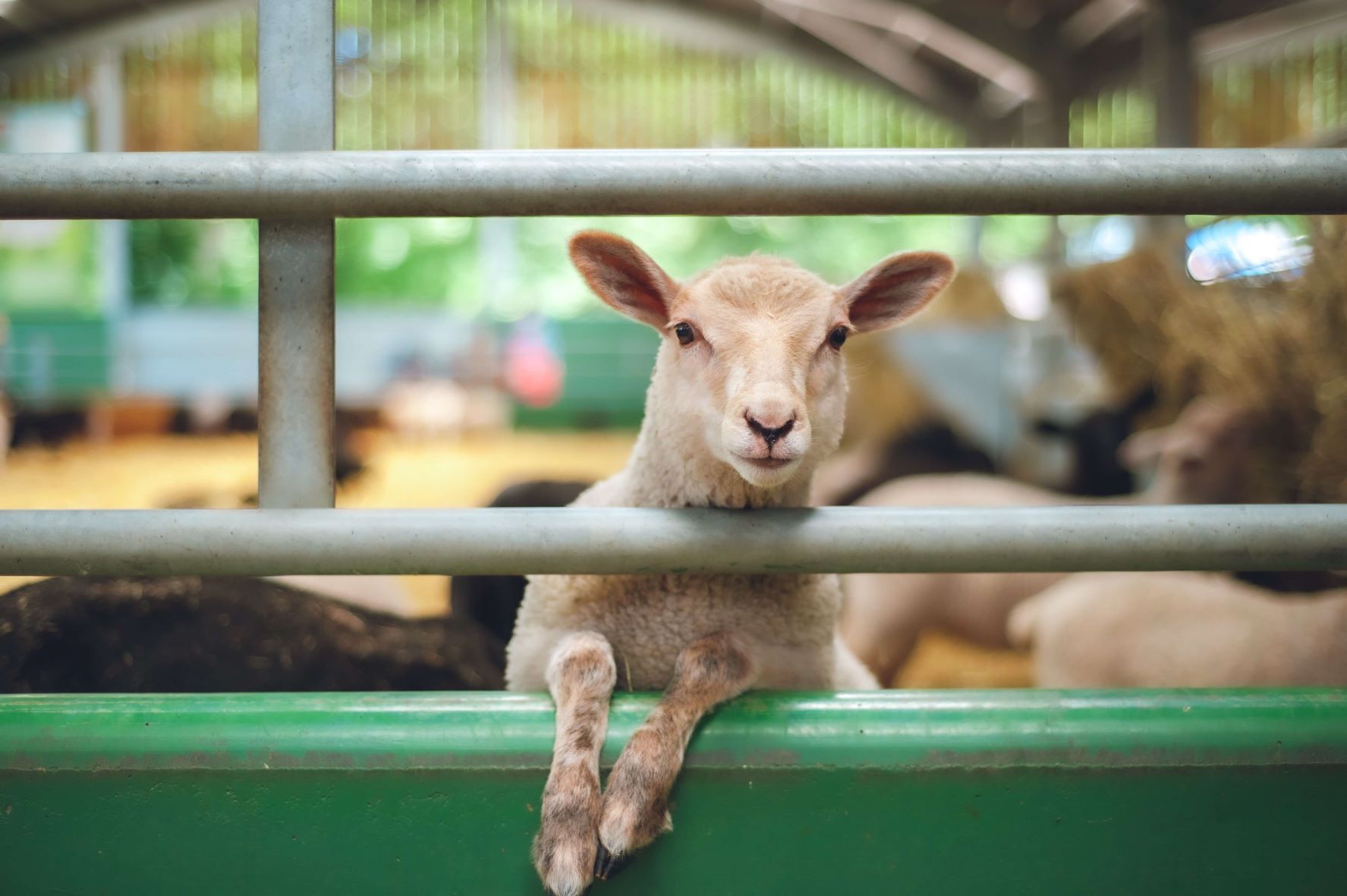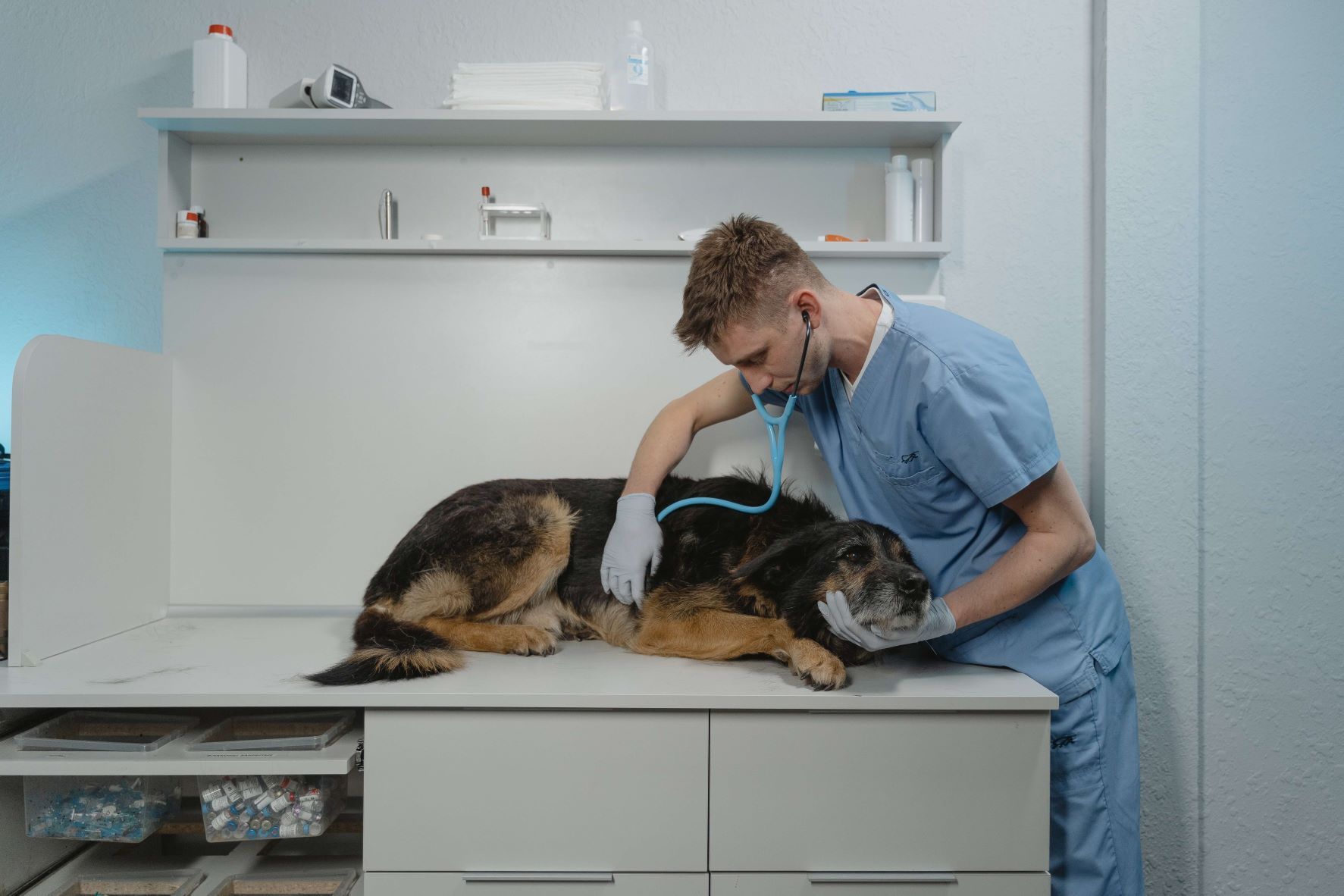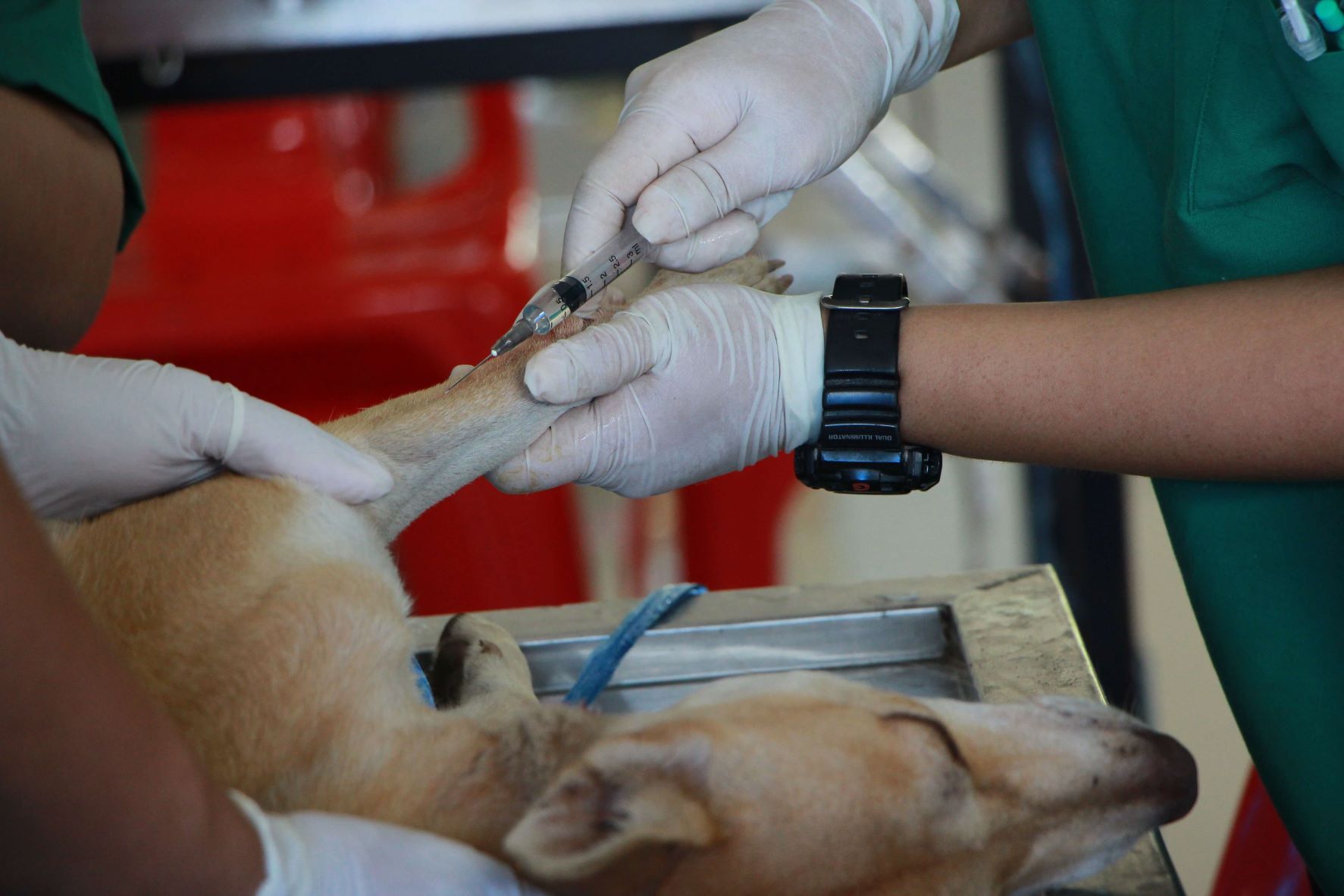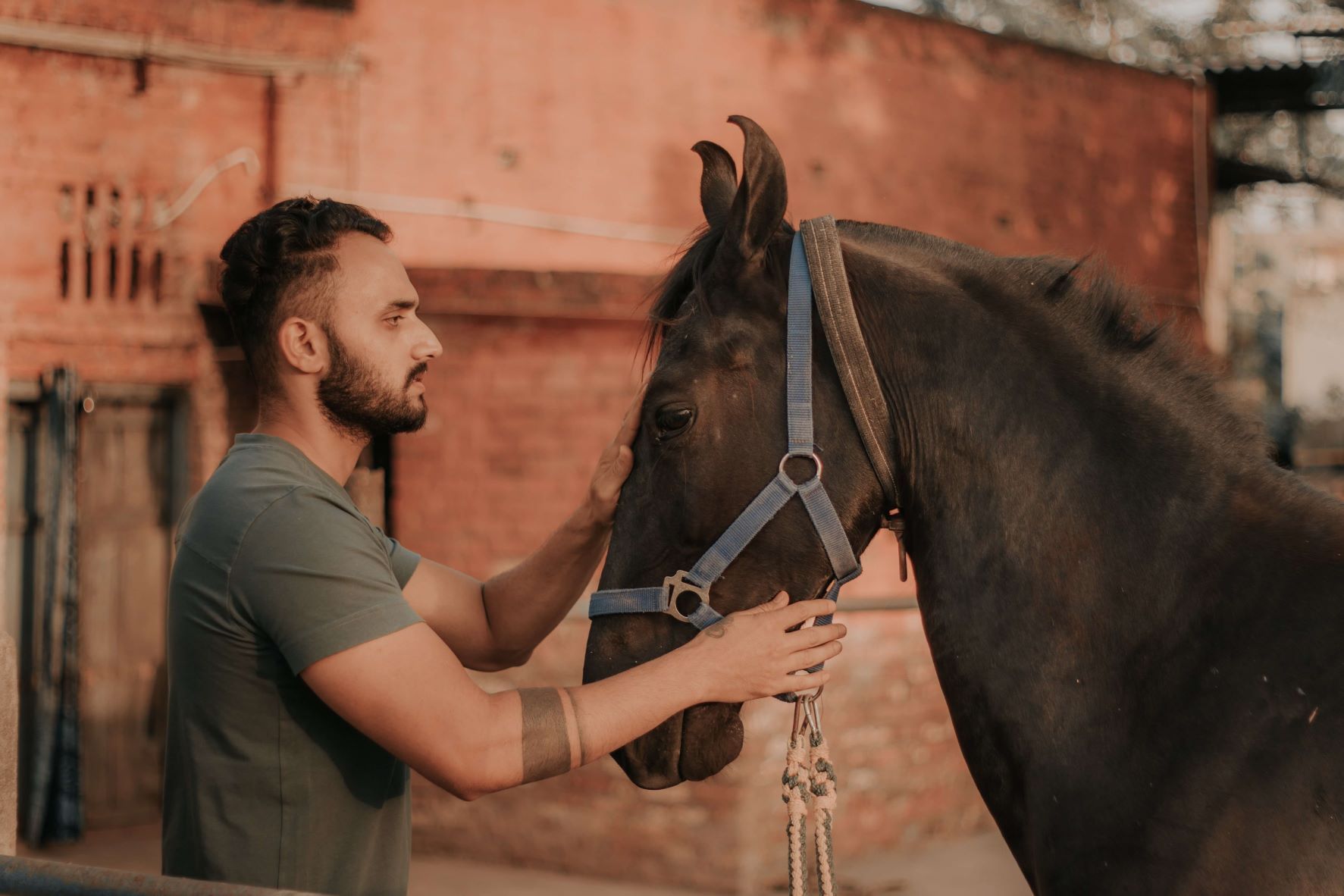Top Veterinary Medicine Schools

Picking a higher education institution to attend is a monumental decision that can feel stressful and even impossible. With such a wide range of different schools available, it can be difficult to even know what your options are. If you are considering pursuing veterinary sciences, you should know about the top programs available to you. Read through this researched guide to gain insight into the top veterinary medicine schools.
Bold.org helps you find and apply for exclusive scholarships. Make a profile to gain access to hundreds scholarships now.
Overview of Veterinary Medicine
Veterinary medicine is the area of study and practice concerned with the health and treatment of animals in a medical capacity. Individuals in this field are trained and educated to provide healthcare to animals of varying types, and depending on one’s education, be able to perform surgery in order to facilitate the health of the animal.
Get Matched to Thousands of Scholarships
Create your Bold.org profile to access thousands of exclusive scholarships, available only on Bold.org.
Create Free ProfileCareer Summary
- Median Salary: $100,560
- Percent Above National Income Average: 63.14%
- Total Sector Employment: 67,650
- Degree Median Salary vs Adjacent Degree Types: $100,560 vs $26,810
2022 Best Veterinary Medicine Schools
5. University of California - Davis
6. University of Maryland - College Park
9. North Carolina State University at Raleigh
10. University of Minnesota - Twin Cities
11. University of Illinois at Urbana - Champaign
12. Virginia Polytechnic Institute and State University
16. Lincoln Memorial University
17. Mississippi State University
20. The University of Tennessee
22. Louisiana State University
23. University of Missouri - Columbia
1. University of Pennsylvania
- Location: Lancaster, PA
- Graduation Rate: 96%
- Acceptance Rate: 7.66%
- Student to Faculty Ratio: 6:1
University of Pennsylvania (Philadelphia, PA) is recognized as a great Ivy League institution of higher learning and research. Penn houses the first medical school and is one of the pioneer centers of technological invention. The university fosters an interdisciplinary curriculum across all academic programs. Penn also offers continuing education, distance learning, summer programs, and international programs. Penn houses a School of Veterinary Medicine that offers a top-ranked Doctor of Veterinary Medicine degree program. The School also offers other related graduate programs and dual-degree options. The VMD program provides traditional clinical practice and fosters a cross-disciplinary approach to learning.
Are you currently or looking to study at University of Pennsylvania? Consider applying to Pennsylvania scholarships to help achieving your collegiate dreams easier.
2. Cornell University

- Location: New York, NY
- Graduation Rate: 94.53%
- Acceptance Rate: 10.85%
- Student to Faculty Ratio: 9:1
Cornell University (Ithaca, NY) is one of the top, public research universities in the United States. Students are expected to learn and apply their knowledge to practical benefits and economic prosperity in the country. The College of Veterinary Medicine offers several graduate programs, internships, externships, as well as opportunities for continuing education.
The DVM program fosters a world-class education and an innovative approach to learning. Students are expected to develop their clinical, critical thinking, and communication skills. Cornell has a cutting-edge research program designed with an interdisciplinary curriculum. The university also fosters cross-college collaborations, allowing students to explore new fields of study.
Are you currently or looking to study at Cornell University? Consider applying to New York scholarships to help achieving your collegiate dreams easier.
3. Tufts University
- Location: Taunton, MA
- Graduation Rate: 94.26%
- Acceptance Rate: 14.95%
- Student to Faculty Ratio: 9:1
Tufts University (Medford, MA) has a wide range of programs for students to choose from. This private research university fosters active citizenship and public service in all its disciplines. Before turning into a large research university, Tufts was a liberal arts college.
The school embraces internationalism and provides opportunities for study abroad programs. Cummings School of Veterinary Medicine manages the Doctor of Veterinary Medicine program as well as other graduate programs. It also offers dual degree programs. It is the only veterinary school in New England. Future doctors and scholars will gain relevant skills as well as the professional knowledge needed across all clinical settings.
Are you currently or looking to study at Tufts University? Consider applying to Massachussettes scholarships to help achieving your collegiate dreams easier.
4. University of Florida
- Location: Orlando, FL
- Graduation Rate: 88.26%
- Acceptance Rate: 36.58%
- Student to Faculty Ratio: 18:1
University of Florida (Gainesville, FL) is a public university and one of the flagship research institutions under the State University System of Florida. The university offers comprehensive programs across 16 academic colleges and more than 150 research centers and institutes. One of the missions of the university is to provide its students with quality education and encourage them to conduct nationally recognized research studies.
Veterinary medicine is offered at the university. The program curriculum is divided into three phases which are designed to provide students with a solid academic and clinical skills background. The university also offers additional certification programs for DVM students.
Are you currently or looking to study at University of Florida? Consider applying to Florida scholarships to help achieving your collegiate dreams easier.
5. University of California - Davis
- Location: Berkeley, CA
- Graduation Rate: 86.67%
- Acceptance Rate: 38.87%
- Student to Faculty Ratio: 20:1
University of California - Davis (Davis, CA) is a public university under the University of California system that offers the largest variety of degree programs. It has over 180 undergraduate and graduate degree programs and specializations. Over the years, UC Davis has established its reputation for providing quality agricultural and environmental sciences programs.

The Doctor of Veterinary Medicine degree is a four-year program that provides academic instructions and clinical skills training. The program aims to produce competent, and confident graduates.
Are you currently or looking to study at University of California - Davis? Consider applying to California scholarships to help achieving your collegiate dreams easier.
6. University of Maryland - College Park
- Location: Baltimore, MD
- Graduation Rate: 86.98%
- Acceptance Rate: 44.18%
- Student to Faculty Ratio: 18:1
University of Maryland - College Park (College Park, MA) is a public institution and Maryland’s flagship university. The school is said to be one of the “Public Ivies”. The school offers competitive academic programs that are consistently ranked among the best in the country. The university offers Veterinary Medicine and Pre-Vet programs. The DVM program is offered through the Virginia-Maryland College of Veterinary Medicine. All classes are delivered through the Virginia Tech campus. UM also offers related graduate programs that award master’s and Ph.D. degrees. The College Park campus focuses on conducting cutting-edge research.
Are you currently or looking to study at University of Maryland? Consider applying to Maryland scholarships to help achieving your collegiate dreams easier.
7. University of Georgia
- Location: Atlanta, GA
- Graduation Rate: 87.12%
- Acceptance Rate: 45.3%
- Student to Faculty Ratio: 17:1
University of Georgia (Athens, GA) is one of the oldest public universities in the United States. The university has a wide range of academic programs offered. UGA also provides education with programs focused on public service and technology transfer. The university also fosters an active research environment.
The College of Veterinary Medicine manages a wide range of programs including Doctor of Veterinary Medicine and other graduate programs, continuing education, and several programs for K-12 students. The DVM program offers three different areas of emphasis: equine/food and fiber animal track, mixed animal, and small animal.
Are you currently or looking to study at University of Georgia? Consider applying to Georgia scholarships to help achieving your collegiate dreams easier.
8. Ohio State University

- Location: Canal Winchester, OH
- Graduation Rate: 85.77%
- Acceptance Rate: 53.74%
- Student to Faculty Ratio: 19:1
Ohio State University (Columbus, OH) is a public university originally founded as Ohio Agricultural and Mechanical College. OSU initially offered agricultural and mechanical disciplines but today, the university has a long list of academic programs for students to choose from. It also has an active research culture.
The university awards both undergraduate and graduate degrees. OSU offers a Doctor of Veterinary Medicine degree that's a four-year professional program that requires three to four years of pre-professional study. The program provides a strong foundation to students before assuming roles in the broad field of veterinary medicine. The College of Veterinary Medicine also offers graduate programs and a Veterinary Public Health program.
Are you currently or looking to study at Ohio State University? Consider applying to Ohio scholarships to help achieving your collegiate dreams easier.
9. North Carolina State University at Raleigh
- Location: Winston Salem, NC
- Graduation Rate: 81.89%
- Acceptance Rate: 45.13%
- Student to Faculty Ratio: 14:1
North Carolina State University at Raleigh (Raleigh, NC) is among the most active public research universities in the United States. NC State has a strong list of academic programs. Some of its popular programs are in engineering, statistics, agriculture, and life sciences. The College of Veterinary Medicine offers a Doctor of Veterinary Medicine and several graduate programs.
The College trains future veterinarians and veterinary research scientists through interdisciplinary biomedical innovation, conducting solution-driven research. DVM students are exposed to a range of courses on scientific disciplines related to health and disease control in animals. The low student-faculty ratio allows a more hands-on training for the students.
Are you currently or looking to study at North Carolina State University? Consider applying to North Carolina scholarships to help achieving your collegiate dreams easier.
10. University of Minnesota - Twin Cities
- Location: Saint Paul, MN
- Graduation Rate: 82.91%
- Acceptance Rate: 56.74%
- Student to Faculty Ratio: 17:1
University of Minnesota-Twin Cities (Minneapolis, MN) is a recognized public university with an active research program. UMN is considered a Public Ivy. The university is the oldest and largest university in the public system and it is organized into 19 colleges, schools, and other major academic units. The College of Veterinary Medicine trains students to be leaders, educators, scholars, and doctors across the field. Doctor of Veterinary Medicine students are provided with basic sciences and clinical cases that prepare them professionally. The program curriculum also includes internships and clinical rotations. The university also offers a dual degree program in DVM and Master of Public Health.
Are you currently or looking to study at University of Minnesota? Consider applying to Minnesota scholarships to help achieving your collegiate dreams easier.
11. University of Illinois at Urbana - Champaign
- Location: Chicago, IL
- Graduation Rate: 85.13%
- Acceptance Rate: 59.03%
- Student to Faculty Ratio: 20:1
The University of Illinois at Urbana-Champaign (Champaign, IL) is the flagship university of the state's higher education system. The university is among the universities with very high activity on research works. The university offers a wide range of academic and professional programs. The Doctor of Veterinary Medicine program produces broadly trained and clinically prepared graduates. Students are given clinical rotations starting the first semester upon admission. The college also offers a DVM-Master’s in Public Health joint degree program with the University of Illinois-Chicago.
Are you currently or looking to study at University of Illinois? Consider applying to Illinois scholarships to help achieving your collegiate dreams easier.
12. Virginia Polytechnic Institute and State University
- Location: Abingdon, VA
- Graduation Rate: 85.67%
- Acceptance Rate: 70.04%
- Student to Faculty Ratio: 14:1
Virginia Polytechnic Institute and State University (Blacksburg, VA) is a public research university and a leading research institution in the country. The university has a long list of undergraduate and graduate programs. It is organized into eight colleges and a graduate school. The DVM program is offered through the Virginia-Maryland College of Veterinary Medicine. All classes are delivered through the Virginia Tech campus. The program provides a combination of basic and applied sciences through integrated courses based on function. Aside from DVM, the college also offers other graduate programs including dual degree programs.
Are you currently or looking to study at Virginia Polytechnic Institute and State University? Consider applying to Virginia scholarships to help achieving your collegiate dreams easier.
13. Texas A&M University

- Location: Kingsville, TX
- Graduation Rate: 81.67%
- Acceptance Rate: 57.79%
Texas A & M University (College Station, TX) is a public research university that focuses on agriculture, environmental and marine sciences, and alike. The university has a long list of undergraduate programs and graduate programs. The College of Veterinary Medicine & Biomedical Sciences offers undergraduate and graduate programs including the top-rated Doctor of Veterinary Medicine. The college offers programs for aspiring veterinarians as early as K-12. The college maintains high standards of ethics and academic performance, thus, interested students are encouraged to prepare ahead.
Are you currently or looking to study at Texas A&M? Consider applying to Texas scholarships to help achieving your collegiate dreams easier.
14. Purdue University
- Location: West Lafayette, IN
- Graduation Rate: 81.95%
- Acceptance Rate: 59.83%
- Student to Faculty Ratio: 13:1
Purdue University (West Lafayette, IN) is a public university founded to provide programs focused on science, technology, and agriculture. It also has comprehensive research programs exploring agricultural research, engineering, and environmental studies. The College of Veterinary Medicine aims to provide comprehensive education to students interested in a career in veterinary medicine. The college offers a wide range of academic programs as well as internships and residency programs and opportunities for continuing education. The college offers a four-year Doctor of Veterinary Medicine program. The program prepares students to be skilled and equipped to take on diverse roles across the industry.
Are you currently or looking to study at Purdue? Consider applying to Indiana scholarships to help achieving your collegiate dreams easier.
15. Michigan State University
- Location: Detroit, MI
- Graduation Rate: 80.73%
- Acceptance Rate: 71.12%
- Student to Faculty Ratio: 16:1
Michigan State University (East Lansing, MI) is a public research university and served as a model for future land grant schools in the United States. It was founded as the Agricultural College of the State of Michigan, a higher institution that pioneered in teaching scientific agriculture. MSU has expanded and now offers a wide range of academic programs.
Are you currently or looking to study at Michigan State University? Consider applying to Michigan scholarships to help achieving your collegiate dreams easier.
16. Lincoln Memorial University
- Location: Cleveland, TN
- Graduation Rate: 55.37%
- Acceptance Rate: 49.58%
- Student to Faculty Ratio: 14:1
Lincoln Memorial University (Harrogate, TN) is a private liberal arts university that offers undergraduate, graduate, and professional degrees. The College of Veterinary Medicine manages the DeBusk Veterinary Teaching Center that provides students with extensive practical experience and educational opportunities. Doctor of Veterinary Medicine is awarded at LMU. The College of Veterinary Medicine aims to produce competent veterinarians, leaders, educators, and scholars. Students are trained through hands-on experience with animals, preventative medicine, and service to the community.
Are you currently or looking to study at Lincoln Memorial University? Consider applying to Tennesse scholarships to help achieving your collegiate dreams easier.
17. Mississippi State University
- Location: Perkinston, MS
- Graduation Rate: 61.46%
- Acceptance Rate: 53.86%
- Student to Faculty Ratio: 17:1
Mississippi State University (Starkville, MS) also known as Mississippi State University for Agriculture and Applied Science is a public university that offers baccalaureate, graduate, and professional degree programs. Some of the popular programs in the university are architecture and veterinary medicine. The Doctor of Veterinary Medicine program provides students the opportunity to focus on species or discipline interests. The four-year program includes two years of full mentored clinical education. The program curriculum is packed with experiential learning opportunities and practical training.
Are you currently or looking to study at Mississippi State University? Consider applying to Mississippi scholarships to help achieving your collegiate dreams easier.
18. Tuskegee University
- Location: Troy, AL
- Graduation Rate: 51.86%
- Acceptance Rate: 51.73%
- Student to Faculty Ratio: 14:1
Tuskegee University (Tuskegee, AL) is a private, historically black university that offers undergraduate, graduate, and professional degrees. Tuskegee is the only university of its kind that offers the Doctor of Veterinary Medicine. The university also offers a specialized program focused on enhancing the surgical skills of the DVM students. Shelter Medicine is integrated with the program curriculum and is recognized by the American Veterinary Medical Association. TUCVM is also committed to developing partnerships with animal shelters and other animal rescue programs.
Are you currently or looking to study at Tuskegee? Consider applying to Alabama scholarships to help achieving your collegiate dreams easier.
19. Auburn University
- Location: Montgomery, AL
- Graduation Rate: 79.11%
- Acceptance Rate: 80.67%
- Student to Faculty Ratio: 19:1
Auburn University (Auburn, AL) is a public research university recognized for its academic programs. The College of Veterinary Medicine offers a variety of academic programs for students interested to pursue a career or graduate education in veterinary sciences. Doctor of Veterinary Medicine (DVM) is a four-year program that provides students with comprehensive education. The college also provides focus on the surgical training of DVM students.
Are you currently or looking to study at Auburn University? Consider applying to Alabama scholarships to help achieving your collegiate dreams easier.
20. The University of Tennessee
- Location: Chattanooga, TN
- Graduation Rate: 72.24%
- Acceptance Rate: 78.85%
- Student to Faculty Ratio: 17:1
University of Tennessee (Knoxville, TN) is a notable public university recognized for its excellent education, research, and public service. The UT Institute of Agriculture offers several academic and professional programs as well as certificates. It manages the four-year program of Doctor Veterinary Medicine. Students are provided with rigorous coursework, practical training, and required clinical rotations. Interested students can also take dual-degree programs. Students can earn a Master's or Ph.D. degree while pursuing the DVM program.
Are you currently or looking to study at The University of Tennessee? Consider applying to Tennessee scholarships to help achieving your collegiate dreams easier.

21. Oklahoma State University
- Location: Goodwell, OK
- Graduation Rate: 64.62%
- Acceptance Rate: 69.98%
- Student to Faculty Ratio: 19:1
Oklahoma State University (Stillwater, OK) is a public university that has a wide range of academic programs. The university was established as Oklahoma Agricultural and Mechanical College (Oklahoma A&M). The Doctor of Veterinary Medicine provides comprehensive education to interested students. It is a four-year program that requires three to four years of pre-professional education. Students are encouraged to take science and animal related majors for their undergraduate studies. OSU offers an undergraduate major in Entomology and it offers three major concentrations: Bio-Forensics, Insect Biology and Ecology, Pre-Veterinary & Medical.
Are you currently or looking to study at Oklahoma State University? Consider applying to Oklahoma scholarships to help achieving your collegiate dreams easier.
22. Louisiana State University
- Location: Alexandria, LA
- Graduation Rate: 68.12%
- Acceptance Rate: 74.58%
- Student to Faculty Ratio: 20:1
Louisiana State University and Agricultural & Mechanical College (Baton Rouge, LA) is a public university notable for its excellent research activities. It is the flagship institution of the Louisiana State University System and is the most comprehensive university in the state. LSU’s undergraduate and graduate programs are organized into 17 schools and colleges. The university offers a Doctor of Veterinary Medicine program. It also offers advanced training and continuing education to professionals. The program is open for transferring students and allows students to pursue dual DVM degrees combined with a Ph.D. or a MPH. The School of Veterinary Medicine also awards MS and Ph.D. degrees in other related areas of study.
Are you currently or looking to study at Louisiana State University? Consider applying to Louisiana scholarships to help achieving your collegiate dreams easier.
23. University of Missouri - Columbia
- Location: Columbia, MO
- Graduation Rate: 71.31%
- Acceptance Rate: 80.73%
- Student to Faculty Ratio: 17:1
University of Missouri - St Louis (St. Louis, MO) is a public research university offering undergraduate and graduate programs including doctoral degrees. Doctor of Veterinary Medicine is a four-year program that provides classroom courses and laboratory training. Students will also get two years of clinical training at the MU Veterinary Medical Teaching Hospital. The College of Veterinary Medicine also offers a BS Animal Science program that integrates two years of professional studies. The program will lead to a bachelor’s degree with professional credits.
Are you currently or looking to study at University of Missouri? Consider applying to Missouri scholarships to help achieving your collegiate dreams easier.
24. Iowa State University
- Location: Des Moines, IA
- Graduation Rate: 74.05%
- Acceptance Rate: 92.05%
- Student to Faculty Ratio: 19:1
Iowa State University (Ames, IA) is a public research university that offers a long list of academic programs. The university has highly recognized programs in health care, law, and the fine arts. Iowa was also the first American university to offer co-educational medical programs. The Doctor of Veterinary Medicine professional degree program that includes rigorous classroom instructions and extensive clinical program. Students also have the opportunities for internships, externships, international programs, and mentorships. The program aims to produce competent and industry-ready professionals.
Are you currently or looking to study at Iowa State University? Consider applying to Iowa scholarships to help achieving your collegiate dreams easier.
25. Colorado State University
- Location: Lakewood, CO
- Graduation Rate: 69.62%
- Acceptance Rate: 81.35%
- Student to Faculty Ratio: 16:1
Colorado State University (Fort Collins, CO) is a public research university that was established as an agricultural college. The university offers over 100 programs across eight colleges. Some of the popular programs are biomedical sciences, engineering, environmental science, agriculture, and human health and nutrition. The Doctor of Veterinary Medicine provides education and training focused on case-based and hands-on learning. Students can choose a clinical rotation focus: small animal focus, large animal focus, or mixed animal focus. The College of Veterinary Medicine and Biomedical Sciences also offers special degree programs that help students and professionals to customize their education based on their goals.
Are you currently or looking to study at Colorado State University? Consider applying to Colorado scholarships to help achieving your collegiate dreams easier.
While these are some of the best schools in the country, there are plenty of others to choose from as well, Ii you would like to narrow down your search based on a location, California and Georgia are a few states with some of the best veterinary schools.
What is a Veterinarian?
A veterinarian is a doctor trained and licensed to provide animals specialized care and treatment. Veterinarians are ultimately responsible for accurate, timely communication regarding treatment plans and injuries associated with animals and pets. Job duties of a veterinarian include the following:
- Perform surgery on animals
- Assess and Diagnose Animal's Health & Wellness
- Dress and Dress for Wounds
- Vaccinate and Test Animals for Illness & Disease
- Prescribe Medication
- Operate Medical Equipment
- Euthanize Animals
- Protect Humans from Disease Carried by Animals
- Performing Clinical Research
- Communicating & Counseling Animal Owners

Veterinarians at an animal hospital, veterinary hospital, or animal clinic work side-by-side with veterinarian assistant and veterinary technicians to diagnose and treat animals. The veterinary team splits surgical, technical, administrative, and clerical duties to ensure a smooth running operation.
How to Become a Veterinarian
In order to become a veterinarian, a student must follow a series of steps predicated upon the other. We will cover them in a series of easy to follow steps below for clarity purposes.
Step 1 Research Veterinary Schools
The initial phase in your journey to become a veterinarian is to research accredited universities and colleges that fit your vocational aspirations and goals. In the United States, there are approximately three dozen veterinarian programs to choose from for prospective students which we have listed below in a centralized fashion.
Step 2 Meet Medical Prerequisites

After receiving admissions information from your top school choices, you will need to ensure you meet all prerequisite requirements. Gaining admissions to an accredited veterinary program may or may not require applicants to have a bachelors degree while many mandate a threshold number of credit hours. Additionally, applicants will need to sit for the MCAT (Medical College Admission Test), GRE (Graduate Record Examination), or VCAT (Veterinary College Admission Test) depending on the schools requirements.
Step 3 Apply to Vet Med Schools
After meeting all prerequisites and sitting for the appropriate standardized test, you can apply to veterinary schools. During your application process, make sure to take the time to illuminate all related work experience associated with animal care. From summer jobs working on a farm to volunteering at an animal shelter or clinic, practical experience will help you stand out from other applicants. It is important to understand the competitive nature of veterinary programs and with acceptance rate of less than fifty percent, you need to put your best foot forward.
Step 4 Vet Med College
After gaining admissions to a veterinary medicine school, you will need to sit down with your advisor and sign up for classes. Given a veterinarian's job requirements, students should not be surprised to learn pre-veterinary courses typically include animal science, anatomy, microbiology, zoology, biology, chemistry and physiology along with general education courses like philosophy, math, business administration, and English. Veterinarian programs are divided between hands-on clinical work, traditional classroom academics, and laboratory work. In fact, in the final year of a 4-year veterinary program students will perform a set of clinical rotations at approved veterinary medical facilities or animal hospitals.
Step 5 Graduate, Exams, Certification, & Licensure
Upon graduating from an accredited college or university, you will receive a DVM (Doctor of Veterinary Medicine) or VMD (Veterinary Medical Doctor) designation. Licensing requirements for veterinarians will vary from state to state, so be sure to research the requirements of your location. Most will need to pass the North American Veterinary Licensing Examination for each of the states you will be practicing in before being allowed to begin working. In addition to earning a veterinarian license, you may choose to add on a specialty certification. Veterinarian certifications can help you land a great job or upskill in a particular area of interest like microbiology, surgical procedures, or internal medicine.
College Requirements for Veterinarians
Veterinary studies is a graduate level degree that requires a student to have earned a related bachelors degree prior to enrollment in a program. Upon completion the student will earn a doctorate, doctor of veterinary medicine (D.V.M.), which typically takes four years. Individuals will study a variety of topics related to healthcare, animal biology, physiology and more, as well as becoming familiarized with diseases and other ailments that may be common a given species.
A curriculum may include:
- Physiology
- Animal Biology
- Anatomy
- Zoology
- Microbiology
Veterinary programs are highly competitive. Acceptance rates at the accredited veterinary medicine schools in the United States range from 6.7% to 34%. An ideal school will provide resources and facilities that are up to date and allow for practical education alongside more traditional classroom courses. Students will work with experienced professionals and will be required to participate in clinical rotations on a path to obtaining licensure.
Most Popular Careers for Veterinarians
Like medical doctors treating human patients, a veterinarian can elect to specialize in medical areas during college or even after graduation. The 5 primary areas of concentration for a veterinarian include: research, inspection & food safety, food animals, equine, and companion. An overview of each is listed below to help you better understand the differing specialty fields within veterinary medicine.
Research Veterinarians
Unlike a Companion Animal Veterinarian, a Research Veterinarian will spend the bulk of their day in labs conducting clinical research. If a private research facility or government agency is considering a new surgical technique for commercial viability, they will engage a Research Veterinarian to test it within a clinical environment before large-scale decisions are made by an organization. Other aspects of a Research Veterinarian’s job may include disease prevention, refining clinical methodologies, and a variety of consulting activities.
Inspection & Food Safety Veterinarians
Food Safety and Inspection Veterinarians are specialists that test a variety of livestock and animal products, provide necessary inoculations, conduct vital research, help enforce public health programs, and work with the FDA to enforce food safety standards and updating approved processes.
Food Animal Veterinarians
The professionals that manage the health of animals that are consumed by humans falls under the purview of a Food Animal Veterinarian or Farm Animal Veterinarian. By spending their time performing site visits at farms and ranches, a Food Animal Veterinarian can help manage the quality control and processes associated with consumable food from a variety of animals such as pigs, cattle, sheep, and chickens.
Equine Veterinarians

Equine Veterinarians work closely with horses and their owners to help prevent diseases, provide treatment plans, and rehabilitate as needed. As an example, an equine vet may be called upon to work in conjunction with a foot specialist or farrier to improve a horse with limb deformity, balance, and lameness. They may spend substantive time around horses performing basic examinations, inoculations, drawing blood, treating wounds, prescribing medication, and performing surgery.
Companion Animal Veterinarians
Companion Animal Veterinarians are responsible for providing pet owners with a variety of help and education for the benefit of their pets. Examples can include diagnosing health related issues, providing counsel to pet owners, and performing medical tasks like broken bones, inoculations, and dental work. Per the AAVMA, 75% of Companion Animal Veterinarians work in an animal hospital or private clinic.
Employment Opportunities in Veterinary Medicine
Veterinarians work with a variety of animal types, and specialization is possible within the field. Job growth is expected to increase rapidly over the next decade due to growing demand for professionals and an increasing pet population. Statistics show that individuals are willing to pay high premiums for pet care in this way, and as such it should be relatively easy for graduates to find employment or establish their own clinic. Advances in pet medicine and surgery also have increased demand for qualified professionals.
Where Do Veterinarians Work?
Veterinarians work for an array of private clinics, state agencies, local government, and federal government organizations. You can find veterinarians employed in a wide variety of animal hospitals, farms, laboratories, ranches, classrooms, slaughterhouses, medical offices, and think tanks.
Veterinarians that work in the food safety industry will be on-site at ranches, slaughterhouses, food processing plants, and farms. Their job will be to help the ranchers and owners comply to the FDA guidelines and enforce industry standards across all locations and animal variations. At the same time, a veterinarian that specializes in research will spend the bulk of their time in an office or lab having nominal contact with animals.
Veterinarian Job Duties
Traditional licensed vets spend the bulk their day treating wounds, examining animals, providing medical diagnosis, rehabilitating animals, performing surgery, administering tests, provide inoculations, prescribing medications, and counseling pet owners. Additionally, veterinarians are trained to treat a number of animal injuries and illnesses through the use of various medical equipment, x-ray machines, surgical tools, and ultrasound technology. A veterinarian will provide medical treatments and procedures for animals that parallel what a physician would provide for a human.
Veterinarian Salary & Career Outlook
Mean annual income for a licensed veterinarian in the United States is $101,530 which is nearly $49 an hour. The top 25% of veterinarians average $118,600 per year with the bottom twenty-five percent averaging just over seventy-thousand dollars. The variation in pay exists based on factors such as work experience, size of the veterinary hospital, scope of job duties, hours worked, and population density.
The BLS estimates there are approximately 79,600 veterinarians currently employed in the U.S. The projected growth rate is estimated to be 19% through 2026 adding over 15,000 veterinarian jobs during this time. The national average growth rate is estimated at six percent placing veterinarians on a path to grow three times the national average.
Employment forecasts indicate veterinarians will remain in high demand in the coming years. Job stability and income growth favor those that hone their craft, effectively engage with others, are empathetic, possess great time management skills, effectively manage resources, and communicate well with others.
Additional Veterinary Resources
The American Veterinary Medical Association is a professional organization that works to advance the interests of its members, as well as provide resources and guidelines the ensure the quality of its practitioners.
To access exclusive financial aid, make a profile on Bold.org and use the scholarship search feature to find veterinary scholarships.